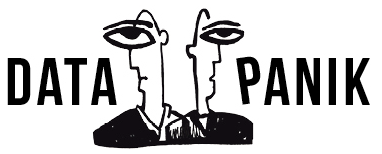Truthout voorspelt dat de volgende fase van het kapitalisme, de post-Corona economie, vooral op drie poten zal steunen: meer robots, minder jobs en een sterkere verwevenheid van big tech met de surveillance industrie. Big tech lijkt alvast sterker dan ooit uit de Coronacrisis te zijn gekomen. Online platformen hebben getoond hoe cruciaal ze waren in die periode waarin wereldwijd thuiswerk gestimuleerd en verplicht werd, heel wat activiteiten (van communiceren tot winkelen) zich online afspeelden en dienstverlening niet meer ter plaatse maar vanop afstand gebeurde. Volgens Truthout zou de wereldeconomie er na de pandemie wel eens heel anders uit kunnen zien, met steeds meer digitalisering van alle aspecten van de samenleving (inclusief oorlog en repressie). Drijvende kracht achter die “nieuwe” economie zijn de steeds nauwere banden tussen big tech, big finance en het “militair-industrieel-veiligheidscomplex”.
The third leg in this triangulated bloc of capital is the military-industrial-security complex. As the tech industry emerged in the 1990s, it was conjoined to the military-industrial-security complex and the global police state. Over the years, for instance, Google has supplied mapping technology used by the U.S. Army in Iraq, hosted data for the CIA, indexed the National Security Agency’s vast intelligence databases, built military robots, co-launched a spy satellite with the Pentagon and leased its cloud computing platform to help police departments “predict” crime. Amazon, Facebook, Microsoft and other tech giants are thoroughly intertwined with the military-industrial and security complex. The rise of the digital economy blurs the boundaries between military and civilian sectors of the economy and brings together finance, military-industrial and tech companies around a combined process of financial speculation and militarized accumulation.
Worldwide, total defense outlays grew by 50 percent from 2006 to 2015, from $1.4 trillion to $2.03 trillion, although this figure does not take into account secret budgets, contingency operations and “homeland security” spending. By 2018, private military companies employed some 15 million people around the world, while another 20 million people worked in private security. The new systems of warfare, social control and repression are driven by digital technology. The market for new social control systems made possible by digital technology runs into the hundreds of billions. The global biometrics market, for instance, was expected to jump from its $15 billion value in 2015 to $35 billion by 2020.
Post-COVID Economy May Have More Robots, Fewer Jobs and Intensified Surveillance

